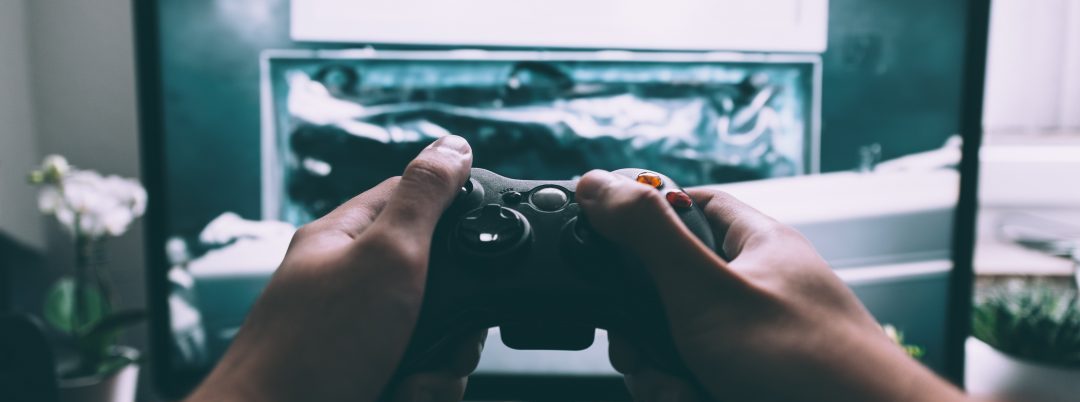
My brother is one of those kids that plays video games into the wee hours of the night. He gets home from school, throws his backpack on the floor, and runs to his computer. For the next couple hours, we don’t see him but oh, can we hear him—yelling at the ‘bad guys’, laughing with his friends, and pounding away on the keyboard. Now, my dad has always had conflicting feelings about this behavior: he’s clearly having fun with his friends, but will his incessant video game-playing hinder his performance at school? While we’re still exploring the answer to this question, a new study “Games people play: How video games improve probabilistic learning” conducted by neuropsychologists of the Ruhr-Universitat Bochum suggests that his playing video games might actually have the opposite effect: it could enhance his performance at school.
The research team recruited 34 volunteers, half of which claimed to play “action-based” games on a gaming console for more than 15 hours a week and half of which did not regularly play video games. They then faced off in a learning competition, which was built around a weather prediction task designed to investigate the learning of probabilities, as reported by the team in the journal Behavioral Brain Research.
After being shown different cue card combinations with varying pictures, the subjects were asked to guess whether the card combination predicted rain or sun and then were told if their guesses were correct or not. They eventually learned which each card combination meant and were then instructed to fill out a questionnaire about the task in order for the researchers to gage their learned knowledge.
The video gamers proved to be much better than the non-gamers at deciphering weather predictions based on the card combinations. And they actually performed even better when the cards presented higher uncertainties: for example, a card combination that forecast 60% chance of rain and 40% chance of sunshine. This observation along with the evaluation of the questionnaires showed that the gamers acquired more knowledge concerning the card combination meanings than the others.
“Our study shows that the gamers are better in analyzing a situation quickly, to generate new knowledge and to categorize facts—especially in situations with high uncertainties,” says lead author Sabrina Schenk. She goes on to explain the team’s belief that “playing video games trains certain brain regions like the hippocampus,” which plays a major role in learning and memory function. Schenk hopes that video games can possibly be used one day to treat decreases in memory performance.
There are a lot of factors that go into whether my little brother’s video game habits will affect his school performance for better or for worse: like how often he’s playing them and if they’re distracting him from his homework. But it’s certainly consolation to know that they at least have the potential to enhance his learning abilities and improve his overall performance at school.
Source: RUB “Gamers Have an Advantage in Learning.” NeuroscienceNews. NeuroscienceNews, 30 September 2017. <http://neurosciencenews.com/gamers-learning-7624/>.
Original Research: Abstract for “Games people play: How video games improve probabilistic learning” by Schenk S, Lech RK, and Suchan B in Behavioral Brain Research. Published online August 24 2017 doi:10.1016/j.bbr.2017.08.027
Let’s keep in touch! Sign up to receive our newsletter:
Start a Relationship with An Exceptional Counselor
- Skilled and caring professional counselors
- Accepting all major and most insurances
- High-touch customer service & premium benefits
- Same- or next-day appointments
- Ultra-flexible 23.5hr cancellations













